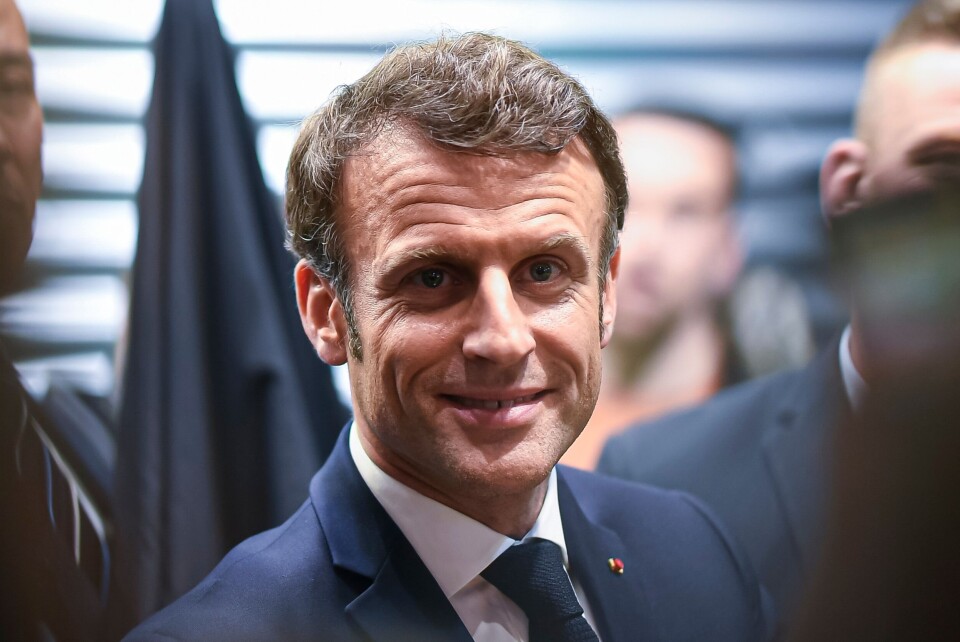-
Hosting scheme in south-west France lets newcomers sample lifestyle
Households in nine Dordogne communes volunteer under Mes Nouveaux Voisins scheme
-
French boulangeries demand right for staff to work on May 1 so they can open
Artisan bakery owners can work but employees cannot, while certain industrial bakeries are allowed to remain open with workers
-
How many Americans live in Paris - and where else are they choosing in France?
Over a quarter of all US nationals in France live in the capital city
Macron: limiting president to two consecutive mandates is ‘stupidity’
Controversial comment allegedly made during meeting with opposition party leaders

President Emmanuel Macron reportedly called France’s presidential two consecutive term limit ‘absolute stupidity’ during a recent meeting with politicians from rival parties.
The 12-hour meeting took place in Seine-Saint-Denis on Wednesday (August 30), with prominent politicians from across France’s major political parties being invited to discuss issues with the president before the political summer recess ends.
The talks, said to be on topics such as international policies, reformation of France’s institutions and the "cohesion of the nation”, did not finish until 03:00 despite starting the afternoon before.
The comment caused criticism from both sides of the political spectrum, with left-wing politician Jean-Luc Mélenchon saying Mr Macron had “cracked.”
Others who attended the meeting claimed the president made the comment in jest.
President has two consecutive term limit
Under the Constitution of the French Fifth Republic (the current iteration of the government, in place since 1958), originally there were no limits on how many terms the president could serve.
A 2008 amendment introduced these, however, limiting presidents to a maximum of two consecutive five-year terms (in 2000, the length of a term was reduced from seven years to five).
Mr Macron is currently serving his second consecutive term – first being elected in 2017, he will be president until 2027, after winning last year’s election.
The consecutive term limits are generally seen as a check on the power of the president who has a wide range of executive powers they can use.
Mr Macron allegedly made the controversial comment after Jordan Bardella, leader of the far-right Rassemblement National party queried changing the constitution to allow for a single-term seven-year presidency.
The exact phrase he is said to have used – funeste connerie – could also translate as ‘disastrous bullshit’.
Our December 2022 article, which you can read below, highlights a potential loophole Mr Macron could use to run for a third consecutive term, although potential usage could face challenges from France’s constitutional court, if he chose to take that route.
Read more: France’s Macron ‘could stand for third consecutive term’ as president
Read more: President Macron faces battle over immigration crackdown in France
Term changes unlikely to be made
Despite the comments – and whether they were tongue-in-cheek or otherwise – a change to the constitution to allow for additional consecutive term limits is unlikely.
This is largely due to Mr Macron’s collection of centrist parties not having an outright majority in the National Assembly, and therefore being unable to vote through any modifications without the help of other parties – an exceptionally unlikely scenario.
There are concerns from Macron’s political camp, however, that his longer-term projects could be in jeopardy after he leaves office in 2027.
Under current rules, he would be allowed to run again after a pause from running in 2027 – it means he could run in both 2032, and if elected, once again in 2037. He is currently 45, so young enough to do so.
His unique rise to office (including the formation of a party only months before 2017’s elections), alongside offering political positions to a combination of politicians from the moderate strains of both left and right wing parties in France, means he has no clear political successor.
Recent opinion polls show potential candidates for the 2027 election currently working in Mr Macron’s government fall far short of a chance of being elected – sometimes, only gaining single-digit support, falling far behind party leaders of the Rassemblement National (far right), La France Insoumise (far left), and Les Républicains (right wing).
Related articles:
Teachers baffled by Macron’s plan to ‘teach history chronologically’
























